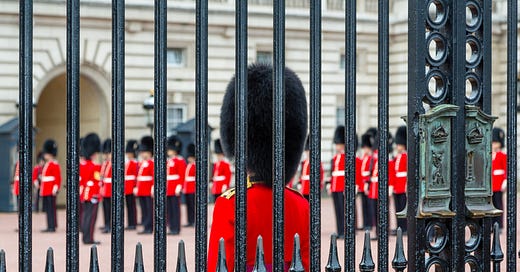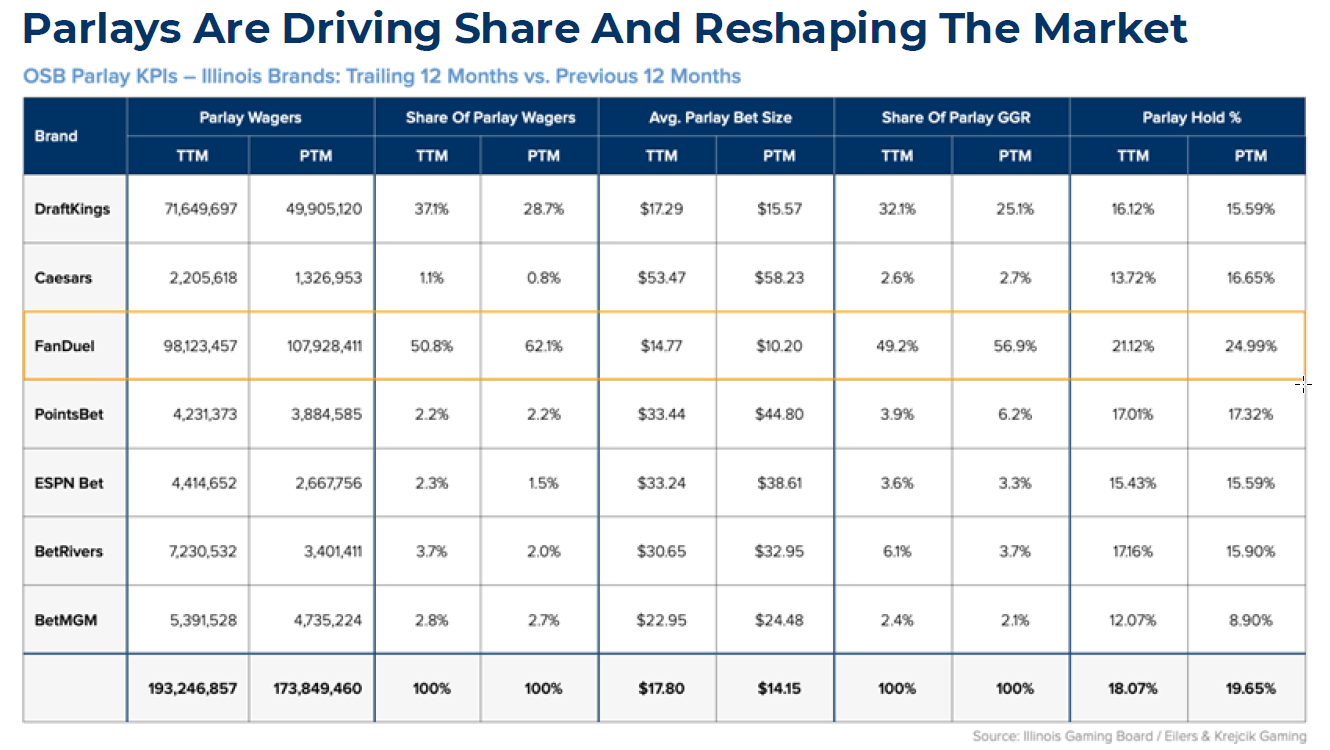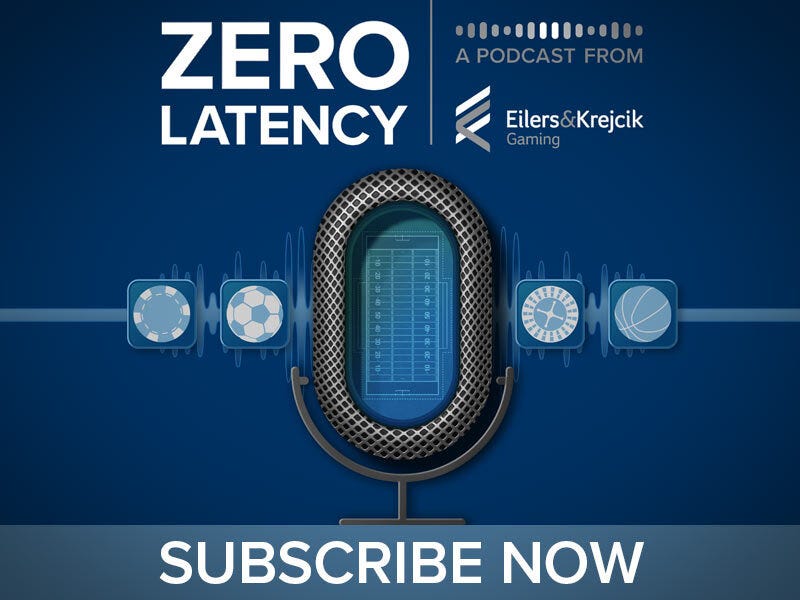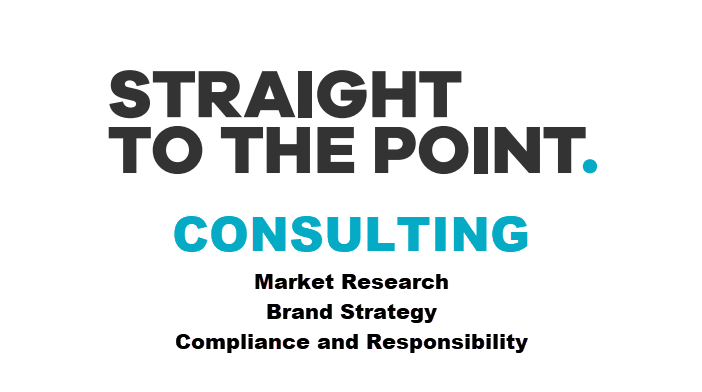Changing Of The Guard
Illinois is the only state that breaks out sports betting revenue by wager type, and the data shows prop bets, parlays, and in-play are more popular than traditional wagers.
The Bulletin Board
NEWS: This isn’t your grandfather’s sports betting industry. Bettors now prefer prop bets, not traditional wagers on game outcomes, at least in Illinois.
LOOSE ENDS: Vermont has a new RG site; Birches Health launches new NC initiative; WagerWire unveils Fantasy Sports marketplace.
VIEWS: Tennessee’s lax sports betting regulations are back in the spotlight.
NEWS: Minnesota Alliance on Problem Gambling advocates for a complete college prop bet ban.
AROUND the WATERCOOLER: NYRA contract dispute with FanDuel.
STRAY THOUGHTS: the fishhook concept.
SPONSOR’S MESSAGE - Sporttrade was borne out of the belief that the golden age of sports betting has yet to come. Combining proprietary technology, thoughtful design, and capital markets expertise, our platform endeavors to modernize sports betting for a more equitable, responsible, and accessible future.
Sporttrade’s newest feature, The Tape, prints all trades made on the app in real-time.
Prop Bets Overtake Traditional Wagers In Popularity
The industry’s seemingly singular focus on single-game parlays makes perfect sense when we look at the reporting data from the one state that breaks out sports betting handle and revenue by product: Illinois.
Illinois has two wagering categories:
“Tier 1 sports wager” means a sports wager that is determined solely by the final score or final outcome of the sports event and is placed before the sports event has begun.
“Tier 2 sports wager” means a sports wager that is not a tier 1 sports wager [think prop bets and in-play].
“Data provided by the Illinois Gaming Board shows that, in the 12-month period from May 2023 to April 2024, bettors in Illinois put down $6,281,901,895.02 worth of handle, or 50.5% of the money wagered, on Tier 2 bets, as opposed to $6,146,906,742.97 of handle on Tier 1 bets.”
The split is even more pronounced when college sports are excluded. Per Play Illinois, 52.3% of wagers on professional sports are Tier 2.
This isn’t a surprise to anyone who has been paying attention. SGPs are proving incredibly popular, and because of their higher hold rates, sportsbooks are more than happy to nudge customers in that direction.
Industry everything, Chris Grove, has called this the casinofication of sports betting, and as gamified as sports bets may seem, we are likely at the very beginning.
“It’s not hard to imagine how an auto-picked 12-way parlay within an inning of baseball would become a product that consumers would simply click on and then play in a very similar way to how they might play a slot machine. The events will unfold in front of them in real time, even as the consumer is basically passive in terms of their input,” Grove told attendees at the AGS GameON Customer Summit in 2022.
Or, as Grove posted on LinkedIn ahead of this year’s Super Bowl:
“3) Is this the last year where "old school" betting rules the roost? For reasons of habit, technology, and data, American sports betting has long been dominated by the basic bets - winners and totals.
”But in a U.S. sports betting market where mobile dominates the consumer experience, technology and data allow for more and more exotic bets in terms of both timeliness and complexity, and fan preferences seem to be aggressively shifting toward a more kinetic betting experience, this might be the last Super Bowl we see where the traditional bets make up the lion's share of the handle.”
Grove included an interesting slide in his recent EGR North America presentation, which he posted on LinkedIn, that demonstrates the growing share of and higher hold rate of parlays:
Loose Ends: Vermont RG Site; Birches Health NC Initiative; WagerWire Launches Fantasy Sports Marketplace
Vermont’s simple but good RG website: Six months after the state launched mobile sports betting, the Vermont Department of Mental Health has unveiled its responsible gaming website. The site links to self-exclusion options and the 1-800-GAMBLER helpline and features a live chat. The site has a straightforward call to action and, in my opinion, is a good starting point for other states: “Online sports betting. Scratch-offs. Card games among friends. It doesn’t matter what you’re playing. If you need help or want to quit gambling, our team of specialists is here for you, 24/7. All calls and messages are free and confidential.” Simple, clear messaging.
Birches Health launches new initiative in NC: The North Carolina Department of Health and Human Services (NCDHHS) Problem Gambling Program, ECU’s Gambling Research and Policy Initiative (GRPI), and Birches Health announced a new initiative “to offer metrics-based gambling disorder treatment and resources to all individuals reaching out to the North Carolina Gambling Hotline.” Per the press release, the initiative will offer “specialized virtual therapy from licensed clinical providers will be available as part of an integrated clinical program. Funding for non-insured and underinsured individuals is being provided by the NCDHHS Problem Gambling Program to ensure there are no financial barriers to services.”
A fantasy sports marketplace: WagerWire has launched a new fantasy marketplace in its app that allows users to buy and sell daily fantasy Pick ’em entries with the tap of a button. WagerWire Co-Founder and CEO Zach Doctor said, “This launch represents a way to bring more ownership and control over their entries. For the first time, there is a way to cash in on your lineups even if they go on to lose - by selling it to a friend or on the open market. The excitement is palpable.” WagerWire also announced the establishment of independent fantasy and media verticals, FantasyWire and the Wire Media Group.
SPONSOR’S MESSAGE - SUBSCRIBE NOW to Zero Latency, the new podcast from Eilers & Krejcik Gaming that provides unparalleled insight into the U.S. online gambling industry through interviews with industry insiders and analysis from EKG experts.
Minnesota Advocates Call For Full College Prop Ban
There has been a rash of columns in the wake of Minnesota’s failure to legalize mobile sports betting. While most of the columns were of the “who’s to blame” variety, one in particular points to a potential new policy ask when Minnesota revisits sports betting in 2025.
In an op-ed in the Marshall Independent, Susan Sheridan-Tucker of the Minnesota Alliance on Problem Gambling called Minnesota’s inability to legalize online sports betting in 2024 an opportunity to “re-engineer any future bill to include important consumer protections to ensure there are resources in place to support the probable spike in problem gambling.”
Most of Sheridan-Tucker’s asks are noncontroversial and will likely be part of any future Minnesota legislation:
More funding
Self-Exclusion
Advertising restrictions
However, a fourth ask indicates that the NCAA’s efforts to prohibit prop bets on college players are expanding to all prop bets.
Per Sheridan-Tucker:
“Finally, we need to place a ban on prop betting — side bets not related to the outcome of a game — on college games to prevent gamblers from making excessive bets and to protect student athletes from harassment and potential game integrity issues.”
As I’ve mentioned many times in this newsletter, restrictions are unlikely to end with player props. First, as I wrote on Monday, these prohibitions will not achieve the desired results. A second reason is that the anti-gambling crowd will grow more emboldened after each victory.
Tennessee Sportsbook Fined For Not Being Able to Cover Player Balances
Some great reporting out of Tennessee by journalist Jon Styf, who dug into one of Tennessee’s little-known online sports betting platforms, ZenSports. Tennessee regulators recently fined the company $60,000 for insufficient cash to cover bets placed in December.
Per Styf’s reporting, “ZenSports declared it had nearly $1.4 million in player balance liabilities on Dec. 31 and just $245,406 in cash reserved for users and nearly $30,000 in cash on hand.”
One bettor who spoke to Styf raised several other red flags.
After abandoning the registration process, Felix Baum was contacted by ZenSports and told that he would receive a very nice bonus “if he wired either $20,000 or $50,000 to the company, ZenSports would start his account and comp a room for him at the Nashville Omni Hotel.” Baum lives in Indiana and would need to travel to Tennessee to place bets.
More troubling, Baum claims that his attempts to withdraw his winnings weren’t processed, and Zen Sports’ chief operating officer called and asked him to reconsider the full withdrawal and offered more incentive to keep most of his funds in his account.”
Despite the shortfall and the fine, regulators conditionally approved ZenSports’ license renewal. “The conditional license approval requires a full audit, completed by Sept. 14 and submitted to the council by Nov. 14,” Styf notes. Board Chairman Billy Orgel told ZenSports CCO Eddie Ponce that this level of regulatory oversight was unique to ZenSports.
And this is where I have questions. This type of auditing shouldn’t be unique. However, Tennessee has proven to have perhaps the most relaxed sports betting regulatory system in the country — this is not the fault of the regulators; instead, it’s the rules that appear to need more teeth.
For example, another Tennessee-only sportsbook ran into trouble in 2021 when Action247 (the parent company is a payday loan company, which has caused many to question the mixing of the two businesses) had its license suspended for “credit card fraud, money laundering, and illegal proxy betting had taken place on the platform, resulting in hundreds of thousands of dollars in transactions impacting numerous victims,” Sports Handle reported. The company’s license was later reinstated by a judge.
Why hire Steve Ruddock? Over the years, Steve has advised startups, national gambling companies, government agencies, and investment banks on a wide variety of topics.
Whether you’re looking for market research, want to raise your brand awareness, or are trying to develop responsible gaming strategies, Steve can help with honest, balanced, no-nonsense analysis of the situation.
Steve’s unique experience and insights are often the missing piece to the puzzle.
Reach out for more information: Straight to the Point Consulting.
Around the Watercooler
Social media conversations, rumors, and gossip.
The New York Racing Association has cut off FanDuelTV and its online horse racing betting company, TVG, as the two sides struggle to agree on a new contract. A press release from the NYRA reads, “NYRA provides the racing content that fuels the profits of out-of-state ADWs like TVG/FanDuel. NYRA must prioritize the overall health of the sport and broader industry here in New York, and we will continue negotiations to seek an equitable resolution so that our racing is widely available nationally.”
Per Ed DeRosa on X, one of the hiccups is the NYRA wanting a cut of all betting handle:
Stray Thoughts
I recently heard of the fishhook concept in Brazilian Jiu Jitsu (h/t Eli Knight).
It works like this: If you are caught in a submission, the correct defense, whether you pull away or push into it, depends on how deep it is. If the hook is shallow, you can pull it out. If the barb is under the skin, you need to push it in deeper to remove it.
It’s certainly true for submissions, but this concept would apply in plenty of other instances.
For example, I think it would work well when addressing problem gambling.
If the losses are shallow, the approach should be to explain what could happen if they push the hook deeper and nudge the person towards pulling it out now with minimal damage. “Hey, this isn’t great, but it could have been much worse.”
If the losses have piled up, the approach should be to find the best way out since there isn’t a pain-free solution. Quitting gambling and dealing with the fallout (pushing the hook in deeper to get it out the other side) won’t be pretty, but trying to win your way out of the hole (and yanking the hook out) is just going to cause a lot more damage.
Knowledge and experience should guide us in removing the hook because pushing when you should pull or vice versa will cause unnecessary damage.








